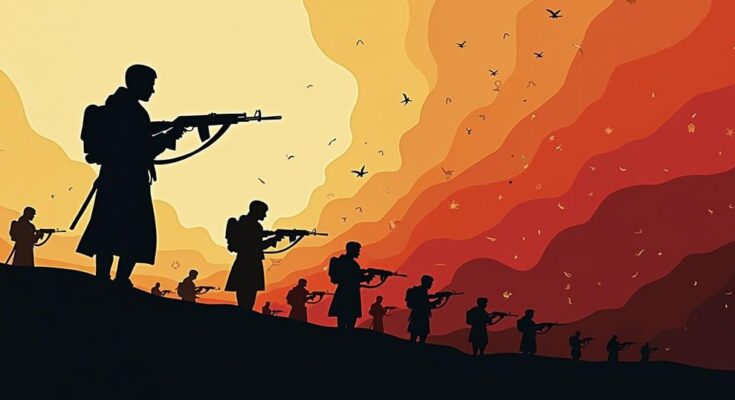The article examines the potential implications of Israel’s recent aggressive military operations in Lebanon on Iran’s strategic response. Following the assassination of Hamas leader Ismail Haniyeh, Iranian leaders may feel compelled to retaliate but are likely to approach this with caution. Analysts argue that Iran’s response could include a mix of direct actions and military strategies, while also striving to maintain a sense of control and legality. With a new Iranian president in office advocating for strategic patience, the article explores the delicate balance Iran aims to achieve in its response to Israeli aggression.
The ongoing violence in Lebanon, coupled with the assassination of Hamas leader Ismail Haniyeh, poses critical questions regarding Iran’s strategic response. The Iranian leadership, while promising vengeance for what they perceive as an attack on a valued ally, is also contemplating a measured retaliation to avoid escalating tensions further. In recent days, Israel has inflicted unprecedented casualties and destruction in Lebanon, killing over 620 people and wounding thousands, with military operations targeting Hezbollah and broader infrastructure. This reality prompts Iranian leaders to rethink their strategy and possibly adopt a more direct and assertive stance in response to Israel’s actions. Analysts suggest that while Iran has maintained restraint until now, the intensified Israeli strikes could accelerate their planned retaliation. Particularly notable is the recent speech by Supreme Leader Ayatollah Ali Khamenei, who reassured military commanders of Hezbollah’s resilience and stated, “final victory will belong to the resistance front and the Hezbollah front.” The rhetoric implies that Iran may be preparing to respond soon, as Iran’s military leaders have indicated a decisive approach independent of operational partnerships in the region. Furthermore, military developments reflect this potential shift. Notable incidents, such as the launch of ballistic missiles towards Tel Aviv by Hezbollah, signal an escalation that Iran appears to be endorsing. Military experts within Iran acknowledge the potential for a hybrid form of warfare that transcends mere missile strikes and includes targeted actions against high-ranking officials of the Israeli military and political establishment. Despite a change in leadership to President Masoud Pezeshkian, who advocates for strategic patience in Tehran’s responses to international pressures, there appears to be an unwavering consensus regarding the legitimacy and necessity of retaliatory actions against Israeli aggression. Iran continues to assert its right to defend its sovereignty, but leaders are likely aware of the risks associated with any rash action that could provoke a more robust international response, particularly from the United States. As tensions in the region escalate, Iran is poised to balance its retaliation with the need for strategic calculation and international law adherence to avoid further destabilizing an already volatile situation.
The article discusses the ramifications of Israel’s military actions in Lebanon, particularly targeting Hezbollah, following the assassination of Hamas leader Ismail Haniyeh, which Iran considers a significant provocation. It examines how these events might influence Iran’s response strategy amid escalating tensions in the Middle East. The piece highlights strategic insights from various analysts and Iranian military officials about the nature and timing of potential Iranian responses, revealing a complex interplay of military, political, and diplomatic considerations that characterize Iran’s approach to Israel and its allies.
In conclusion, the response from Iran to Israel’s extensive military operations in Lebanon is likely to be calculated and deliberate, considering both the historical context and present circumstances. Iran appears poised for a potential escalation in retaliation but remains focused on maintaining strategic control over the timeline and nature of its actions to avoid further entanglement in broader conflicts. The leaders in Tehran continue to evaluate the implications of their choices in the face of ongoing Israeli aggression while striving to adhere to their principles of defense and resistance within the framework of international law.
Original Source: www.aljazeera.com




